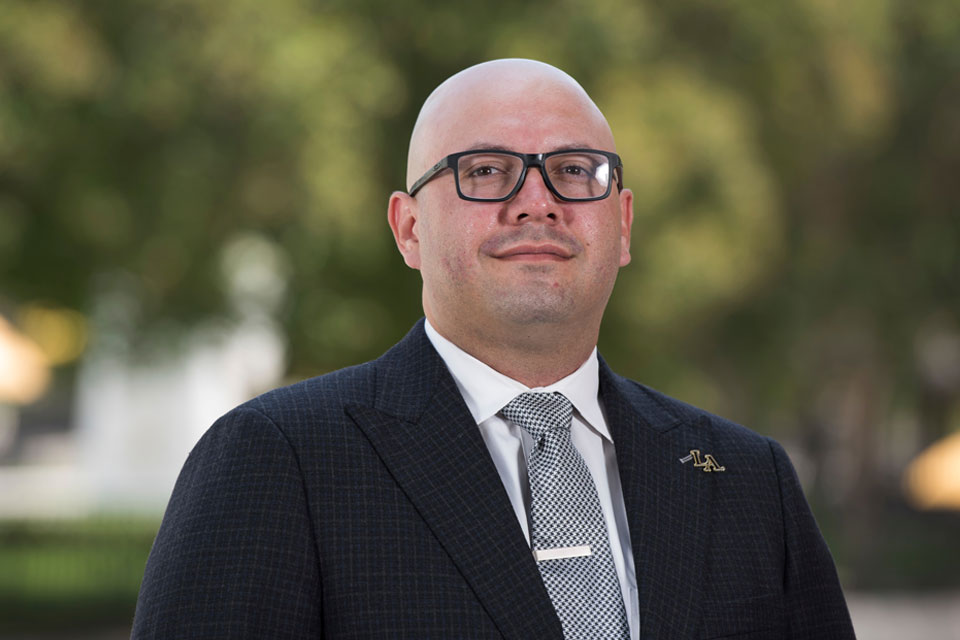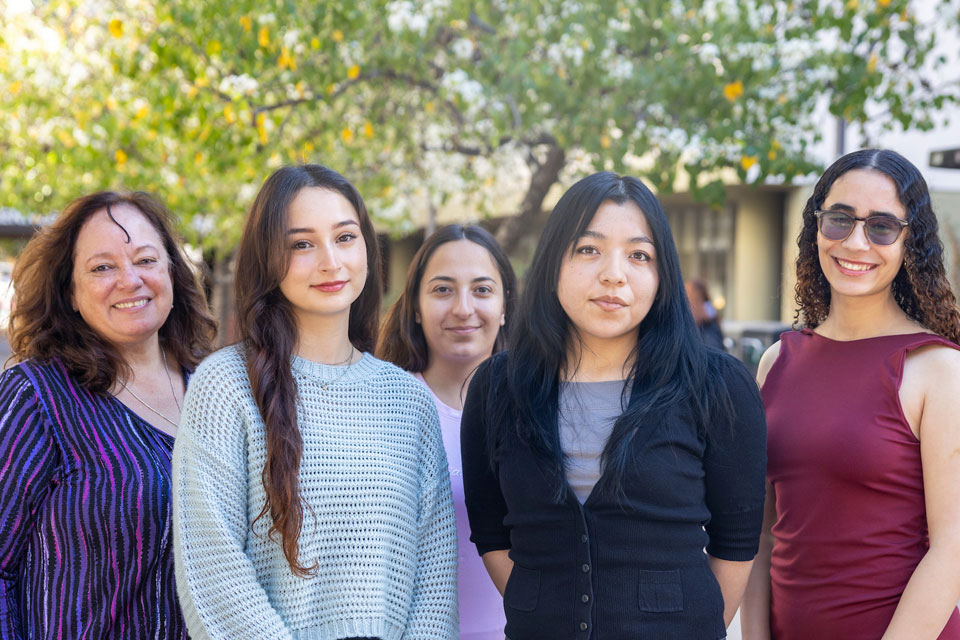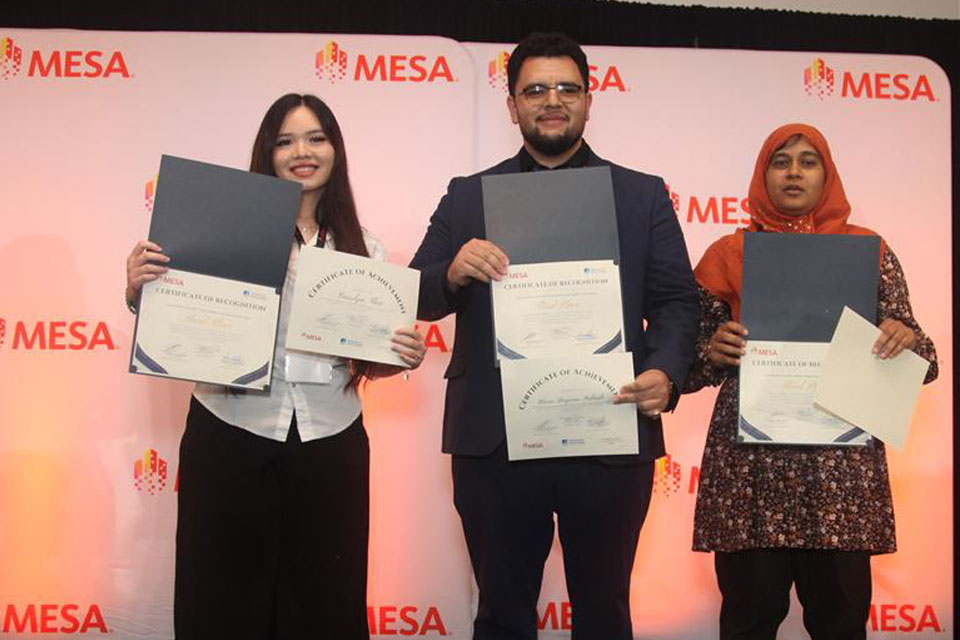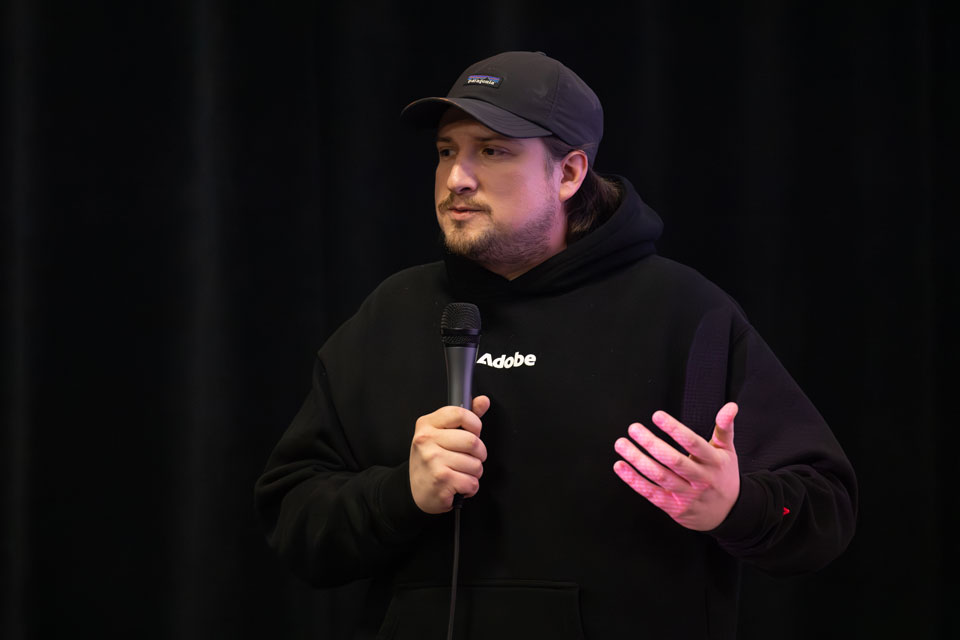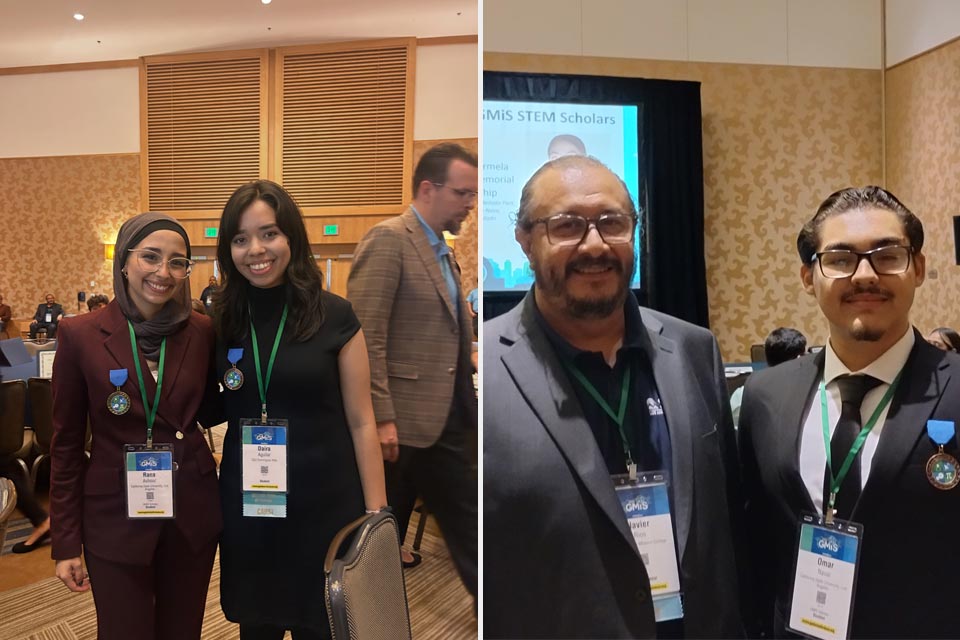Joel Ramírez, a double-degree Cal State LA alumnus who will be enrolling at Harvard University in the fall to embark on his Ph.D., is an accomplished young scholar on the move.
Ramírez is also a scholar of how we move, whether he is studying the evolutionary biology of humans’ ability to throw, dig, carry and run or, in his master’s thesis research, evaluating diagnostic approaches for patients recovering from spinal cord injuries.
The human need to move has been a subject of fascination throughout Ramírez’s journey to his Bachelor of Science in Exercise Science and then his Master of Science in Kinesiology as a student in the Rongxiang Xu College of Health and Human Services. He thinks of this as a keystone to his scholarship, from his earlier interest in becoming a physical therapist to his current research exploring connections between movement and quality of life.
For Ramírez, 36, of Whitter, the path to academic achievement took more than one detour. He had to postpone his college studies so that he could work to help support his mother and grandmother. He speaks frankly about managing and recovering from learning disabilities and medical challenges as one of his primary reasons for selecting a profession of service to others.
“Insensitivity toward my limitations, lack of economic stability and racial intolerance have been motivating factors in my pursuit of higher education,” Ramírez wrote in his application to Harvard. In pursuing his Ph.D. in human evolutionary biology, he said, he aspires to reduce educational barriers for his own future students and to serve the public good.
Expanding on that idea, Ramírez said recently, “I want to pursue a professorship where I do research and teach and have my duties split between my community, my students and my field. I fervently believe that is how you help people. Research should be done to help humankind. We should be helping each other.”
Christine Dy, a professor in the School of Kinesiology, Nutrition and Food Science within the Xu College, has served as one of Ramírez’s mentors and thesis advisors.
“Joel is a very serious student with a passion for learning,” she said. “I would characterize him as being a very intelligent and mature critical thinker. I believe that he has high potential for success in doctoral study and as a scientific researcher.”
Ramírez enjoys the dual nature of research, both the solitary and collaborative aspects of the work.
“It’s reading, writing, and then working with data and being able to do all three,” he said. “Most of that is done by yourself. But the beautiful part of it—and what I have come to really appreciate—is working with the team, challenging each other on your thinking, the dynamic discussion that occurs.”
Ramírez’s accomplishments have brought him a long list of awards, including a California State University Sally Casanova Pre-Doctoral Scholarship in 2017-18. The award enabled him to venture outside the familiar setting of Cal State LA to conduct research in the Division of Biokinesiology and Physical Therapy at USC. There, Ramírez said, he learned that he could stand alongside peers at another institution—“to prove myself to myself.”
Ramírez has served as a teaching assistant and more recently an adjunct lecturer in the School of Kinesiology, Nutrition and Food Science, whetting his interest in becoming a professor.
He plans to move to Harvard in Cambridge, Mass., late this summer to become acclimated to his new academic home in the laboratory of Professor Daniel E. Lieberman. Lieberman is a leading scholar of the evolution of physical activity, known in part for his championing of running barefoot. One of Ramírez’s research projects will examine the intensely physical way of life, including barefoot long-distance running, of Indigenous people in Chihuahua, Mexico, the state where his family originated.
As Ramírez relocates to the East Coast, he will carry enduring lessons from Cal State LA. He credits professors Dy, Andrew Cornwell, Ray D. de Leon and Stefan Keslacy—who “use research to give back to the students, to the community”—for inspiring his approach to his work.
Ramírez will take with him a related lesson from his mother: “Your education is not just the knowledge you build up. It’s good morals, good ethics and knowledge. Without all three, you are not an educated person. … You do have to put work into actively making our communities better and caring about other people.”
# # #
California State University, Los Angeles is the premier comprehensive public university in the heart of Los Angeles. Cal State LA is ranked number one in the United States for the upward mobility of its students. Cal State LA is dedicated to engagement, service, and the public good, offering nationally recognized programs in science, the arts, business, criminal justice, engineering, nursing, education, and the humanities. Founded in 1947, the University serves more than 26,000 students and has more than 250,000 distinguished alumni.
Cal State LA is home to the critically-acclaimed Luckman Fine Arts Complex, Pat Brown Institute for Public Affairs, Hertzberg-Davis Forensic Science Center, Hydrogen Research and Fueling Facility, Billie Jean King Sports Complex and the TV, Film and Media Center. For more information, visit www.CalStateLA.edu.

